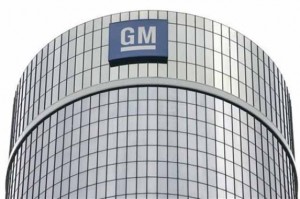The Obama Administration has begun the countdown as it takes the next step in the process of selling off its remaining stake in General Motors by no later than April 2014.
The move comes a month after the U.S. Treasury sold off 200 million shares of GM common stock for $5.5 billion – but also coincides with a jump in the maker’s stock price. Even so, analysts anticipate taxpayers will ultimately lose billions on the federal bailout of the automaker – though the rescue effort that also saved rival carmaker Chrysler has been credited with saving as many as 1 million American jobs.
“This company will always feel a debt of gratitude to the American and Canadian taxpayers for stepping in,” GM Chairman and CEO Dan Akerson told reporters during a recent roundtable session, his comments also referring to aid the maker received from the Canadian treasury.
The Canadian government has not yet laid out plans to sell off its remaining holdings.
The automotive rescue began in late 2008 under former President George W. Bush as the American economy began to collapse. After Congress failed to approve a direct loan program for the auto industry, money was appropriated from so-called TARP funds initially set aside for bailing out the banking industry.
The then-new Obama Administration expanded the automotive rescue, ultimately providing $49.5 for GM and helping steer the maker through a managed bankruptcy in mid-2009 that helped it shed much of its crushing debt while also abandoning scores of excess plants and properties.
The White House insisted – as did the prior administration – that allowing GM and Chrysler to fold would crush the frail economy and result in the loss of as many as 1 million jobs. But the bailout was highly controversial and became a topic of frequent debate during the 2012 presidential election campaign.
Critics have derided GM as “Government Motors” and research suggests some potential buyers have steered clear of the maker for taking the government aid.
That is one reason Akerson and his management team have wanted to sever the remaining ties with the Treasury. They also want to get out from under restrictions on such things as top management pay – though the CEO has repeatedly insisted that Washington has studiously avoided playing any role in GM’s day-to-day management.
The majority of the $49.5 billion invested in GM was converted to equity and the process of selling that off began in November 2010 when the maker staged its Initial Public Offering, at an average $33 a share.
Another 200 million shares were sold in December 2012 for $5.5 billion, or $27.50 a share. But that leases 300.1 million more shares that the White House indicated it wanted to unload within 12 to 14 months – at the latest, April 2014.
If they were sold at the December price, the Treasury would ultimately suffer a loss of nearly $13 billion. But GM shares have been rising in recent weeks, nudging the $30 level with many analysts predicting there could be more gains in the months ahead that will lower taxpayers’ ultimate losses.
The resounding recovery of the U.S. auto market is clearly playing in favor of GM and its rivals. The maker, however, has serious issues with its money-losing European subsidiary. A senior Wall Street auto analyst last week estimated GM shares could surge substantially were the company to unload its Opel subsidiary, which is expected to generate another deficit in 2013, which would be its 15th consecutive annual loss.
In a statement accompanying the outline of the plan to sell off its remaining GM stock, the Treasury Department indicated it hopes to create “opportunities for smaller broker dealers, including women and minority-owned broker dealers” in the sale of the remaining 300 million GM shares.


This is absolute B.S.
The “treasury” is acting as it’s own broker, and is selling OUR property at a loss.
That is against their purpose.
Furthermore, they have NO business deciding which broker dealers handle transactions. Favoritism does not apply.
This administration is _____ __ __!!
Well, I guess one good bit of news is that they waited instead of selling the stock off over the summer when a certain candidate demanded it be sold immediately. At the stock price at that time the loss would’ve been many, many billions of dollars more.
Paul E.